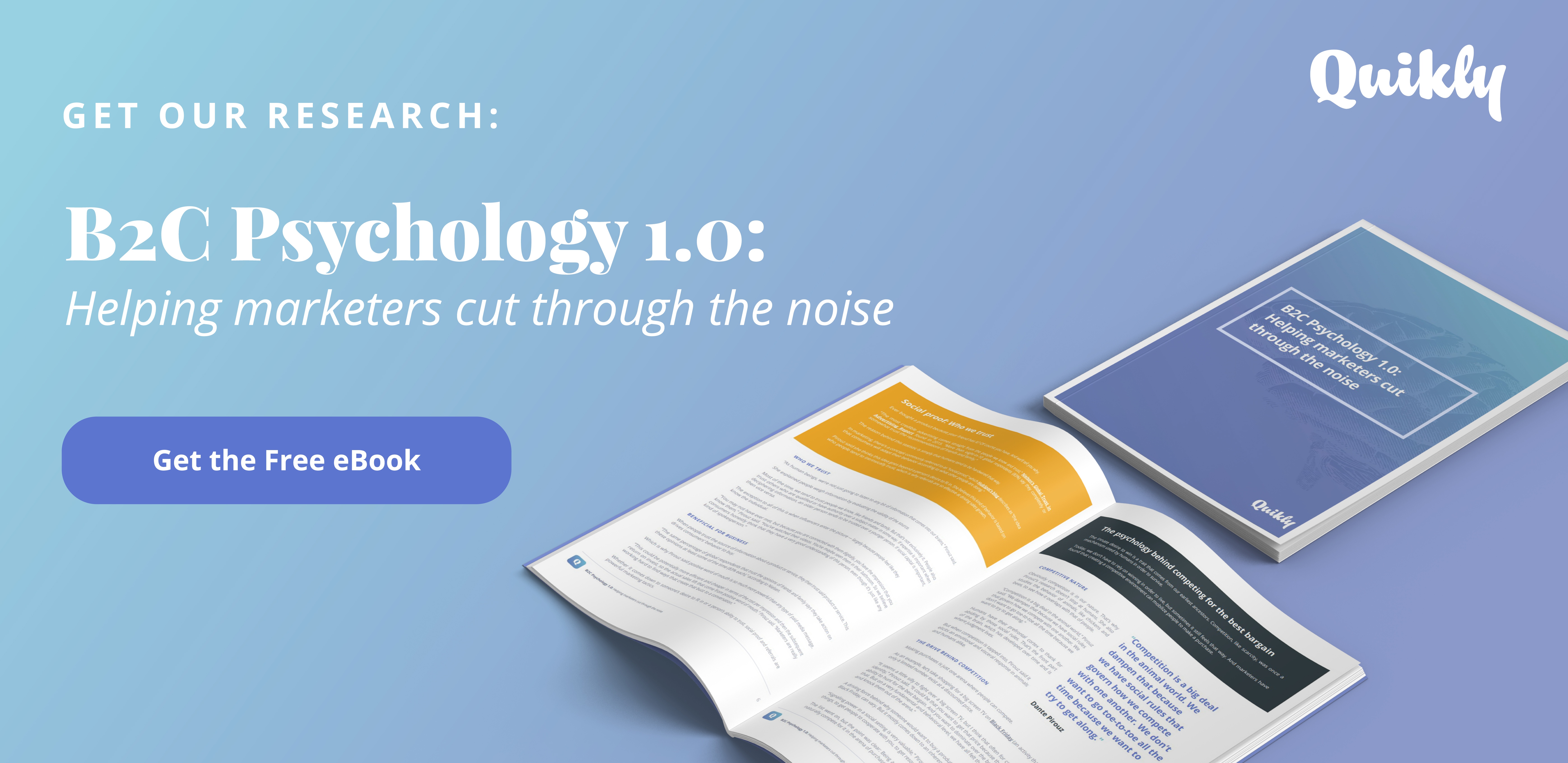Consumer Psychology, Scarcity Marketing, B2C Marketing
Marketing psychology: 4 things you might not know about scarcity and FOMO
Lindsay Keener
Brand Journalist

Recent fascination with marketing psychology has caused many experts to dive deeper into the world of marketing and its connection to the human brain.
We've taken the time to uncover more about concepts like scarcity and the fear of missing out (FOMO), but are there any stones that have been left unturned?
I reached out to Shagoon Maurya, psychotherapist and founder of ursafespace, to help us uncover hidden truths about our favorite marketing psychology gems.
Here are four things she shared that you might not know:
1. FOMO can be a result of scarcity
First, let’s get into a few definitions: Scarcity occurs when something like an item or opportunity is scarce. When we perceive something as scarce, we become hyper-focused on it. This often elicits anxiety, as we think about potentially losing out. As a result, we can feel a fear of missing out, or FOMO.
These two are often leveraged in marketing to motivate consumers. Scarcity and FOMO can come through in everything from checkout timers to limited-time offers.
2. Scarcity and FOMO make us want what others have
It was during a U.S. history course when I first learned about “keeping up with the Joneses.” This 20th century mindset immediately caught my attention as a high-schooler growing up in the age of social media and dealing with teenage emotions.
When I reached out to Maurya to discuss the relationship between scarcity and FOMO, I had no idea she’d relate both concepts back to humans’ innate need to meet up with societal norms. It completely elevated my fascination with both.
“When it comes to scarcity or FOMO or any particular topic around consumer psychology, we as humans feel like when we see something really good in someone else’s life, we also want to have that same thing, even if we already have something really similar,” said Maurya. “The particular chemicals that are generated in our brains make us stop and say ‘Whoa, that looks really nice.’ We start to zoom in and think that if we were to have it too then we’d also look nice.”
This idea of capitalizing on societal trends doesn’t solely fall on consumers, says Maurya. In fact, many marketers profit off of the age-old idea today.
“So when this association of brain waves starts, it works really well with consumer psychology, which the marketing agencies and brands can take advantage of,” said Maurya. “If I’m a consumer and a celebrity or friend is wearing something or doing something, I also want it, and if it costs X-amount, I’m happy to pay for it because that product will give me a sense of fulfillment.”
3. Sometimes scarcity and FOMO motivate us as a result of anxiety
Aside from wanting to align themselves with today’s standards, consumers can also feel motivated to make purchases or act based on fear.
“The fear of missing out intensifies upon the perception of its scarcity. When an individual knows that supply for something is limited, such as one-time offers or exclusive products, they are likely to make decisions based on fear instead of the merit or need of the product,” said Maurya.
From a tangible standpoint, FOMO in general can sometimes look quite unpleasant when it occurs.
“FOMO is associated with stress, fatigue and sleep trouble. It triggers feelings of boredom and loneliness that can negatively impact one's psychological well-being,” said Maurya. “The brain starts to obsessively worry and compare that one's experiences aren't better than others.”
4. Scarcity, FOMO and social proof can all work together to motivate us
Talking to Maurya about a human’s need to be equally as successful as their neighbor, if not more, got me thinking: Do scarcity and FOMO have any connection to social proof, which is also commonly used in marketing psychology?
As a reminder, social proof is the psychological principle stating that consumers have a higher chance of opting into a marketing campaign — or performing any sort of action — if someone they know, or feel like they know, is doing the same. Testimonials are one of the most common ways marketers tap into this psychology.
Turns out, the concepts of social proof, scarcity and FOMO definitely have some influence over one another.
“When it comes to social psychology, if a bunch of people have this product and they’re having fun, or this product is making their life easier, then having this product in my life will probably increase my social status,” said Maurya. This line of thinking, she says, has a great impact on consumers and will drive them to make purchases.
Like many other fields of study, our coveted marketing has many layers that make up its uniqueness. When used the right way, scarcity, FOMO and social proof can work as a distinct trio to elevate marketing campaigns and the customer experience. Now that you know more about these psychology principles, how will you incorporate this newfound knowledge into your marketing?
Lindsay Keener
Lindsay Keener is a brand journalist for Quikly. She covers stories that help to inform and educate consumer-facing marketers.
Lindsay Keener
Lindsay Keener is a brand journalist for Quikly. She covers stories that help to inform and educate consumer-facing marketers.

